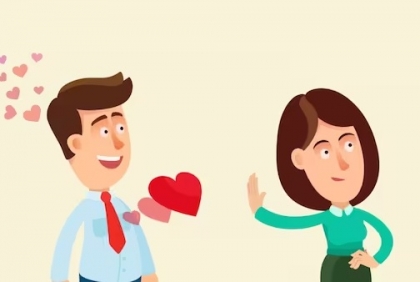10 Clear Signs of a One-Sided Relationship
Navigating relationships can be a rollercoaster ride, but what happens when you feel like you're the only one riding? One-sided relationships can subtly creep into our lives, leaving one person feeling like they're carrying the weight of the entire connection. How do you recognise if you're in one? Let's explore ten signs that might be telling you it's time to reassess the balance.
1. All the Initiative Comes from You
Do you find yourself constantly initiating conversations, making plans, or trying to keep the spark alive? If your partner rarely steps up or seems uninterested in contributing effort, it could signal an imbalance.
2. Your Needs Take a Backseat
Relationships are about mutual care and support. If you consistently feel like your needs are dismissed or sidelined, it could indicate a one-sided dynamic where your partner's needs outweigh yours.
3. Compromise Seems Like a One-Way Street
Healthy relationships thrive on compromise and understanding. But if you're always the one compromising while your partner refuses to meet you halfway, it's a red flag for an unequal dynamic.
4. Emotionally Drained or Stressed
Relationships should lift you up, not bring you down. If you often feel emotionally exhausted, stressed, or anxious because of the relationship, it's a sign that something might be off-kilter.
5. Unequal Communication
Communication should be a two-way street. If your partner dominates conversations, dismisses your thoughts, or seems uninterested in your feelings, it's a sign of a lack of mutual respect.
6. Missing Support During Tough Times
A supportive partner is a pillar during tough times. If your partner is absent or indifferent when you need them most, it might mean they're not invested in providing the support you deserve.
7. Avoidance of Commitment or Future Plans
Healthy relationships involve discussing the future together. If your partner shies away from these discussions or hesitates about committing, it could mean they're not fully invested in the relationship.
8. Feeling Guilty for Being Yourself
Feeling like you have to tiptoe around your partner or suppress your thoughts and emotions out of fear of upsetting them is a sign of an unhealthy dynamic.
9. Overdependence on You
While support is crucial, if your partner relies entirely on you without reciprocating, it creates an imbalance that can lead to a one-sided relationship. This is often referred to as codependency.
10. Your Gut Feeling
Sometimes, your intuition knows best. If you consistently feel uneasy or undervalued despite your efforts, it might be time to listen to your instincts.
Conclusion
Recognising these signs is crucial, but it's equally important to address them. Have an open, honest conversation with your partner about your concerns. Express your feelings calmly and assertively. See if your partner is willing to work on the relationship together. But if they're unwilling to acknowledge or address the imbalance, it might be time to consider whether the relationship is truly fulfilling your needs.
Remember, recognising a one-sided relationship is the first step toward making decisions that prioritise your emotional well-being. Reach out to friends, family, or a professional for support as you navigate these complexities. Ultimately, you deserve a relationship where both parties actively contribute to mutual growth, respect, and happiness.



















